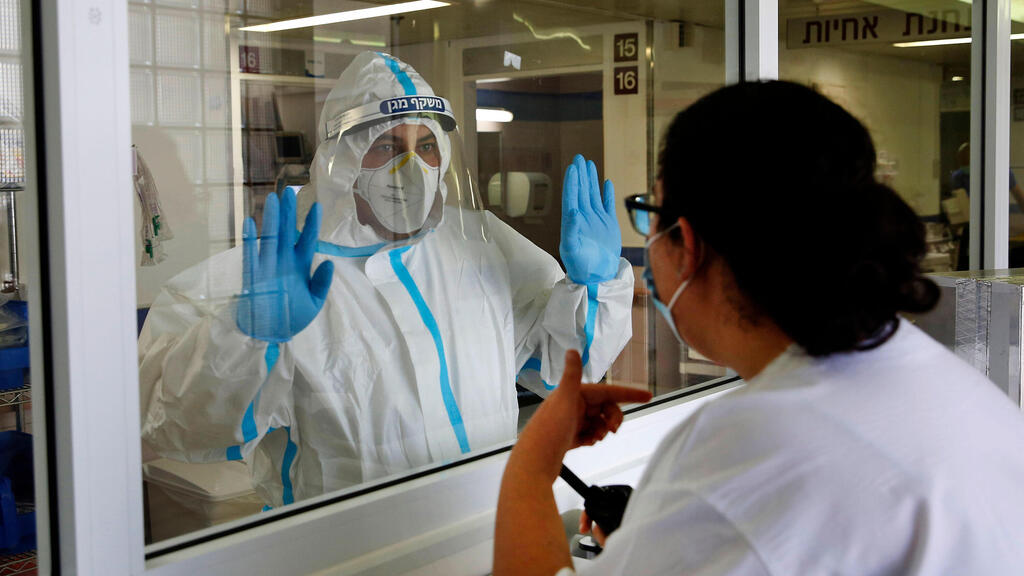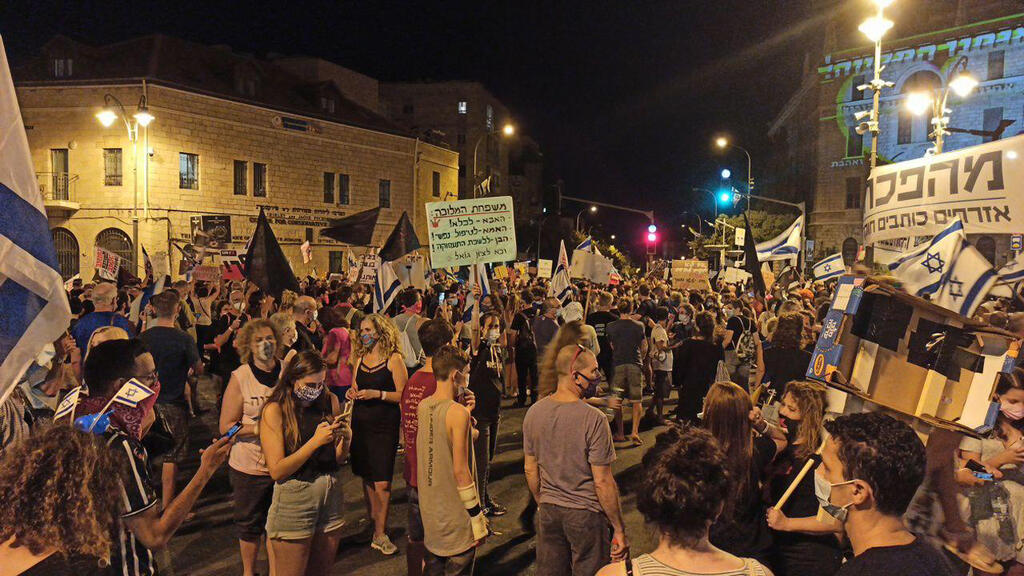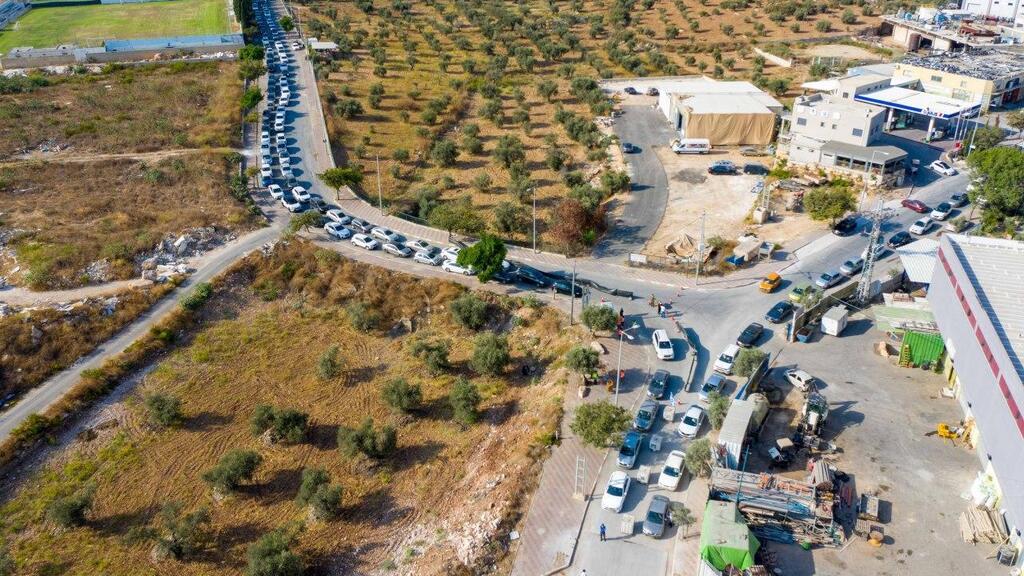Getting your Trinity Audio player ready...
Thirty-one people died from COVID-19 and a record 6,923 new cases of coronavirus were registered in Israel in the last 24 hours, the Health Ministry said Wednesday morning.
Nearly 60,000 tests were conducted after the holiday weekend, in which Jews in Israel and around the world celebrated the New Year.
The Health Ministry said 59,169 COVID-19 tests had been conducted, after the ministry failed to publish any new data on Tuesday. The figures put the contagion rate at an alarming 11.6%.
In the meantime, the coronavirus cabinet, which leads the government's response to the pandemic, was to reconvene on Wednesday morning after it failed Tuesday to reach a decision on further restrictions on Israeli society and economy in a bid to rein in the spread of the pathogen.
The cabinet concluded the meeting after nine hours of deliberations that centered chiefly on whether to impose restrictions on protests, most of which have been aimed recently against Prime Minister Benjamin Netanyahu and which he claims disregard the coronavirus regulations.
3 View gallery


Staff talk through protective glass at a coronavirus ward in an Israeli hospital
(Photo: AFP)
The Health Ministry said 631 patients were in a serious condition, including 163 people on ventilators. The national death toll from coronavirus-related complications rose to 1,316.
Coronavirus czar Prof. Ronni Gamzu told Ynet on Tuesday that if the government were to decide on banning protests, he would support the decision.
"Obviously when you take off your mask to shout during a demonstration or when your mask falls or moves aside in the heat of the moment, it is clear what is happening," he said.
He also said that the country would reopen slowly after the new lockdown, unlike in May when a rapid reopening was quickly followed by soaring infection rates.
"We will not reopen the way we did the last time, there will be no education system, no entertainment, no leisure, no malls and no restaurants. Everything will be very measured, very careful, very very gradual," he told Ynet.
Gamzu also presented the government with a proposal to close synagogues on Yom Kippur as part of necessary measures, sparking opposition from ministers from ultra-Orthodox parties as well as the prime minister.
"You are only allowed to go to the [Western] Wall if you live 1,000 meters from there, but you can come to Balfour from all over the country," Netanyahu said, referring to the protests outside his official Jerusalem residence.
"There must be one rule for prayers, protests, and all gatherings wherever they are. If not, the public will not listen to the directives, and the disease will reach horrifying magnitudes," Netanyahu said.
3 View gallery


Protesters call for the resignation of Prime Minister Benjamin Netanyahu outside his residence in Jerusalem
(Photo: Haim Golditch)
On Wednesday, ultra-Orthodox Shas party leader and Minister of Interior Aryeh Deri threatened his party would resign from the government if synagogues were shuttered on Yom Kippur, the Day of Atonement that is the holiest day in the Jewish calendar.
Israel has been under a nationwide lockdown since Friday in an effort to regain control over the spread of the virus, but has kept many private sector and public sector work places open.
First published: 08:55, 09.23.20


